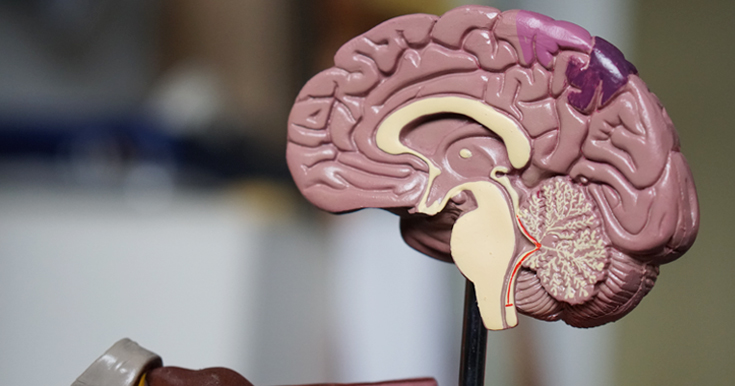Tips to Induce Healthy Eating Habits in Your Kids
Modelling your child’s eating habits at an early stage is very crucial as these manners lead to the later development of a healthy and active lifestyle. Obesity is a prevailing issue in the younger kids today. Junk is turning the kids into couch potatoes, and they don’t even bat an eye on the healthier options. There are various innovative and smart ways in which you can improve the eating habits of your little ones. A little understanding and creativity will go a long way.
Make Healthy Meals Look Delicious
Children get attracted to colours. Add more varieties of food ingredients to make the food appealing. You might also make cartoon characters or doodles with sauces and mustard to catch your kid’s attention and add a story to it. This trick works great with toddlers, and they will finish the meal in a breath.
Try Engaging the Kids Into Preparation
The fruit of hard work is always delicious. The case is the same with kids too. If they help you prepare the food, they will eat it. Also, you can introduce them to the nutritional values of certain veggies and fruits while cooking. This process will also help you learn your kid’s preferences.
Eat Healthy Yourself
How can you expect your little ones to stick to a healthy food regime when you don’t practice what you preach? Be a role model for your kids. If you follow a perfect eating habit, your child will follow the same path as you, and with little guidance, they will achieve a healthful diet routine.
Reduce Portions
To reduce the trans-fat and sugar intake, consult good paediatrics, and prepare a diet chart for your kid. Paying attention to the portion size will help avoid obesity and increase the nutritional intake and metabolism rate.
Healthy Snacking
One of the most effective ways to induce light veggies and fruits in your lad’s routine is through snacking. Time is a crucial factor. Plan the snacking time not too late and close to the dinner as it would make the child reluctant towards the night meal.
If you live in a big city, your child is more used to junk food, and that’s a given. Try contacting reputed aediatricians in Kolkata, to subsume better alternatives.
Try Making Your Approach More Friendly Than Dictating
As a parent, you must know now that kids can be rebellious. The more restrictions you subject them to, the more they try to defy you. Don’t dictate your child. Don’t put terms and conditions. Don’t reward or punish them through food. Instead, try educating them as to why healthy eating habits are necessary and beneficial for your future.
Look for What Your Kids Eat Outside
Have a check on what your child is served at school during the lunch hour. You can also pack some additional healthy side dishes for your kid to snack. Minimise the consumption of aerated drinks, fast food, and sodas. Whenever you go to a restaurant, choose healthy options, don’t make a health-conscious diet an occasion; incorporate it into your daily lifestyle.
You don’t have to be a specialist in designing the correct diet for your kids. It just takes a few steps and innovative ideas to set your lad’s eating habit on the right path. For any assistance, you can visit https://www.ilshospitals.com/ and try finding the best paediatricians in Kolkata. To know more, call us on ILS Care, +91 90514 60000.
Reasons Which Are Most Likely to Contribute to Urological Problems
Urological problems are pervasive in men and women of all ages today. Owing to our unhealthy lifestyle, these diseases could be short-lived or long term. Adults often ignore urological problems, but if these issues are not treated in time, one might have to face severe medical complications later.
The conditions do not occur automatically, and there is always some or other reason contributing to it. We usually do not pay attention to life events or habits that can potentially lead to urological issues. It’s high time we talk about them and take necessary notes to avoid them.
Ageing
With ageing comes a lot of bladder related problems due to the toughening of membranes. Urinary incontinence is one of the most prevalent issues in aged individuals. Furthermore, kidney stones and other chronic illnesses are also common. It is advised to visit urologists once you reach the age of 40.
Constipation
Constipation causes urinary tract infections in children and adults, which can further lead to urological disorders. If you suffer from constipation caused UTI’s, visit a urologist and bring necessary changes in your diet.
Blocked Urinary Tract
Obstruction in the urinary tract will lead to various urological problems concerning kidneys, urethra, uterus, bladder, etc. It will not only cause internal infections, but you might also witness the signs externally and through fluid discharge. Early detection and cure will save a person from complicated surgeries and stressful medication.
Diabetes
As diabetic people experience a severe grip of sphincter muscles and overactive bladder, the chances of occurrence of UTIs are high. Frequent urination may lead to infections. If you want to avoid urological complications, get diagnosed by a professional, and include the due medication.
Birth Defects
It is not mandatory that urinary tract related issue needs a stimulus to appear. In kids, these problems could be birth-related and can cause UTI’s at an early stage. Certain hospitals offer specialised services for such illnesses concerning children. Understandably, not all places are progressed enough to cater to all your needs and therefore, locate bigger cities near you for safe treatment. If you live in the northeastern part of India, try finding the best Urologist in Kolkata, as the city has some of the most advanced hospitals and offers a great set of choices for medical treatments.
Drinking Habits and Smoking
Alcohol increases the acidic character of urine. Also, the sugar content triggers the bacteria growth assisting in the development of UTIs. Similarly, smoking irritates the lining of the bladder and results in urinary incontinence. If you are a habitual drinker or smoker, the risk of urological problems is relatively high for you, and it’s time to consider your choices.
Physical Inactivity
Various researches have shown that prolonged sitting time and physical inactivity increase the risk of Lower Urinary Tract Symptoms (LUTS). This situation is more common in females aged between 40-60 years. Encompassing 30 mins of aerobic exercise or any other physical workout form will help you overcome the urological issues.
Urological problems pose daily challenges in the affected person’s routine and degrade the quality of life. If you have any of such issues underway, you can visit https://www.ilshospitals.com/ and find the best urology hospital in Kolkata. For similar aids in other cities, there are plenty of well-reputed hospitals that provide a wide range of medical services. Other than medicinal assistance, you might as well try replacing destructive habits with healthier options for a prosperous living.
All About Blood Groups and Immune System
Blood groups affect our immunity directly. Different blood groups are responsible for antibody generation in our bodies in response to viruses, bacteria, and other intruders.
When antigens present in the blood come in contact with an unknown substance, they signal the immune system to take the needful measures against such components. Blood is broadly classified into 8 types, and you must know your blood group before undergoing any medical procedure.
Understand how your blood type is related to the health and immunity system and how likely your body will acquire various diseases based on your specific blood group.

Cancer
It is observed that blood group A is more likely to develop stomach cancer among all blood groups. The ABO gene also plays a significant role in heightening cancers of the lungs, breast, liver, etc. If you have an A blood group, it’s wise to get yourself thoroughly checked for these cancers.
Stress
If you have a blood group A, stress might be a common and frequent issue for you. As individuals with such blood type have more release of cortisol and stress hormones in their body, they might find it very tough to deal with anxiety.
Heart Diseases
A specific type of gene called an ABO gene can put you at a greater heart disease risk. This threat multiplies further if you live in an area where pollution levels are high. If you belong to the blood group- A, B, or AB, chances of coronary heart diseases are elevated for you. Get yourself thoroughly checked before any mishap.
Pregnancy Complications
Many people don’t know about the rhesus factor (Rh) and its fatal consequences in unfavourable contact with substances. If a pregnant woman’s rhesus factor does not match that of the child’s, the mother’s immune system might recognise the child as an allergy and start making antibodies against it. Further, this can lead to dangerous outcomes for both the mother and the baby.
If you are pregnant and are looking forward to a healthy and easy delivery of the baby, I would advise you to visit a gynaecologist hospital as soon as possible. If you live in a rural area, try contacting some well-known gynaecology hospital in Kolkata, Mumbai, Delhi, etc. These hospitals will have the best medical facilities and services and will be able to cater to all your needs.
Brain Functioning
The ABO gene can also lead to low brain functioning and memory loss and cognition problems. As the O blood group doesn’t have this gene, people with this particular blood type are free from such illnesses. Study shows that individuals having blood group, A, B, and AB, are more likely to develop memory and brain-related problems than those having O blood group.

Malaria
People with blood group O are less prone to get infected with malaria, as the parasite causing this illness doesn’t get easily attached to blood cells of O type.
You need to know your blood type before entering into a medical procedure. Your immune system might not receive certain kinds of treatments positively, and the incompatibility could be fatal. As this problem is common in blood transfusions and pregnancy, you would want to get thoroughly checked beforehand. Dredge out the best gynaecology clinic, gynaecologist hospital near you, or visit sites like www.ilshospitals.com to contact the most reputed gynaecology hospital in Kolkata and nearby cities.
How to Reduce Drying Skin and Hair During Winters?
Dry skin and hair during winters is a common problem we are all aware of. The low humidity indoors and outdoors doesn’t let our skin retain sufficient moisture, and in turn, it starts cracking. Dandruff is another primary concern and contributes to lowering our confidence. Fortunately, there are many cost-effective ways in which you can take good care of your skin during the chill season effortlessly without splurging money on expensive products.
Homemade Moisturizing Mask and Lotion
There is no need to spend a lot of money on moisturizing products because everything you need is already present in your kitchen. Coconut, being an excellent moisturizing agent, is a cure for both dry skin and hair. Honey and lemon mixed to make a perfect peel mask for dry skins. An avocado mask will also work as a hydrating item and will leave your skin soft and glowing. As you can get these products at home and there are no chemicals involved, you don’t have to worry about the side effects.
Using Humidifiers
Humidifiers are the perfect way to maintain a fair amount of moisture in the air. It regulates the moisture when the weather is drying. Keeping the cool air setting on is probably for the best.
Scrubbing
Even when it is winter, you need to bathe regularly while exfoliating your skin gently.
Dry skin mostly composes of dead cells and it is best to remove them. Try using natural, homemade scrubs as chemical-based scrubs might cause extra dryness.
Avoiding Harsh Cleansers
Face Washes and body washes with fragrance are generally hard cleansers. The chemicals present in such products make your skin drier and result in cracking. Use soaps and cleansers which are sulfate-free.
Use Oils and Water
Your dry skin and hair are indicative of less hydration in your body. To prevent that, use more oils like olive oil, coconut oil, almond oil, etc. These have multi-benefits and could be used in both cooking and applying on the skin and hair to provide nutrition.
Drink as much water as you can. It’s difficult because your body fools you during the cold weather, and as you don’t sweat much, you don’t feel like drinking as much water. But the outer environment has less moisture content, and so you should double your usual water intake.
Consumption of Dry Fruits
Dry fruits are great warming agents. They also contain vitamins and minerals that provide nutrition to your body. As dry fruits like almonds and walnuts provide strength to hair and deliver the necessary proteins, you should consume them daily to prevent dryness.
Choice of Laundry and Shampoo Cleaners
Use the laundry detergents, which are fragrance-free as they would not cause unnecessary irritation to your skin, transforming into cracking and scaling. As for shampoo, use sulfate-free ones. Reduce the use of heat devices on hair and provide proper conditioning. Include oiling in your haircare routine.
Taking care of skin and hair during winters is a challenging task. You need to maintain a balanced diet and incorporate vitamin-rich food ingredients in your meals to provide sufficient nutrients, warmth, and moisture to your body. Excessive cracking of skin due to dryness can sometimes impose the dangers of severe skin diseases, and you would want to consult a doctor in such circumstances. Dermatology is the branch of medicine dealing with the skin, nails, hair and its diseases and at ILS Hospitals, our team provides treatment for a variety of skin conditions. Visit www.ilshospitals.com for a consultation with the best dermatology clinic. Meanwhile, don’t forget to include the measures mentioned above and products in your daily lifestyle to reduce dryness from skin and hair.
To know more, visit www.ilshospitals.com or call ILS Care +91 90514 60000.
How to Keep Yourself Warm During Winter – Healthy Food Intakes
The Winter season is always filled with challenges. If you have elderly relatives or toddlers living in the house, you know they are the ones who suffer the most in any extreme season. In the cold, bone-chilling weather, whatever we eat decides how energetic and motivated we would be throughout the day. When lying in a cosy warm blanket with many snacks is everything one could ever ask for, choosing healthy snacking options is a task.
Ginger Tea
A cup of hot ginger tea can do wonders. It provides stimuli for thermogenesis (production of body heat) and boosts the metabolism activity too. If not ginger, you can also go for teas with spices, vegetable soups, and dals. All these options work well in providing heat to the body, making you feel warmer.
Eggs
Eggs are a great source of vitamins and protein. They also help in fighting infections and building immunity. As winter is infamous for cough and cold, eggs are of great help in constructing barriers for pathogens. Eggs are versatile, and you can make numerous dishes with them. Taste-wise, it’s something everyone likes.
Dry Fruits
Well, they are the best snacks. Dry fruits like almonds, apricots, walnuts, peanuts, dates, etc. can boost immunity and help you overcome dry and rough skin. They expel cold and provide the much-needed nutrition effortlessly.
Bananas
Rich in magnesium and Vitamin B, consumption of bananas, help in regulating body temperatures. They also improve the working of various glands of your body. The best part is, it’s easy to incorporate in any meal, and kids love bananas.
Spices
Turmeric, cumin, sesame, cinnamon, and pepper; these spices will offer the best winter flu-fighting mechanism. Turmeric in milk can make your body warm and boost the working of antibodies. Pepper, cinnamon, and cumin help in building barriers against flu and cold infections. Sesame is an incredible remedy for respiratory congestions and illnesses. Pneumonia, bronchitis, asthma is quite common to get triggered during winter. Make sure you have access to multi-speciality hospitals at times of need.
Caffeine
For coffee lovers, the winter season is an absolute bliss. Caffeine is a promising warming agent that keeps you active throughout the day. It helps to improve the rate of your body metabolism. You can combine and experiment with many flavours in your cup of coffee.
Honey
Consumption of honey during winter can work wonders. It reduces muscle pains and fatigue. Moreover, it’s great for sore throat, coughing, and wheezing. You can replace the bitter syrups with honey easily, and kids would love it.
There are times when we get excited about food more than anything. Winters, for example, make you so comfortable that getting out of bed seems impossible. But it’s crucial to maintain the right balance of nutrients and vitamins in the body.
If you are looking for the best hospitals in Kolkata or eastern India, ILS Hospitals is one of the torch bearers of the future of healthcare. We provide specialised treatments in nephrology, gastroenterology, diabetology, dentistry, etc. Check out their emergency helpline numbers for various cities all over India and get access to a safe medical treatment option.
To know more, visit www.ilshospitals.com or call ILS Care +91 90514 60000.
How To Prevent Heart Diseases
We often overhear about a seemingly healthy person passing away from an unanticipated heart stroke. one doesn’t know what’s going on in their body and in what ways it can contribute to the illness unknowingly. It’s extremely essential to start taking care of your health. Heart diseases have become a significant cause of deaths in India, and there is a crying need for spreading awareness about it. We have listed down a few measures to prevent heart diseases and lead a healthy life.
Maintaining A Healthy Weight
Obesity poses an influential risk of heart disease as it manipulates your triglyceride and cholesterol levels. Diabetic people are a majority in the population of those who suffer from heart illnesses. Try adopting a healthy lifestyle by cutting down sugar and eating the right amount of greens. It is important to not let obesity come your way as it makes way for numerous other diseases.
Controlling Blood Pressure
Any individual, irrespective of age, should get their blood pressure checked regularly, if not very frequently, at least once in a year. It’s the fluctuating blood pressure that triggers most of the heart problems. If you are already suffering from heart illness, you should be in constant touch with the top heart hospital near you and keep their contact handy.
Exercise Regularly
Going for a run every morning or partaking in any kind of physical activity for an hour a day improves the blood circulation in your body, and your arteries function well. In this way, blood pressure can be maintained at an optimum level, and hence, the risk of heart diseases is reduced.
Eat Healthy And A Balanced Diet
Many people work out strenuously but don’t give up on the junk food they consume. Further, this cancels out the benefits they are supposed to acquire through the exercises. Reduce your portions and include more and more veggies in your diet. Beans, legumes, fish, meat, low-fat dairy products, fruits, etc. will help you against diabetes and lessen your chances of catching any kind of heart disease too.
Get Enough Sleep
When you don’t stick to your proper seven-hour sleeping schedule, your body drains out, and you keep feeling exhausted all the time. It contributes to high blood pressure, diabetes, and obesity. If you have irregular sleep conditions, contact the best heart hospitals in Kolkata, India, and for that matter, any heart hospital located in major cities.
Stress Management
Stress is a trigger for heart attacks and strokes as it increases blood pressure in the most common situations. In today’s scenario, stress has become one of the main reasons for heart-related issues in all age groups. It is important to cope with stress in the healthiest ways like listening to calm music, exercising, meditating, practising yoga, etc.
Quit Alcohol Consumption And Smoking
Alcohol affects your body negatively in many ways. It makes you gain weight, increases blood pressure, and contributes to organ failure. Similarly, smoking causes the accumulation of harmful substances in the arteries and restricts blood flow. It is also one of the leading factors for coronary heart diseases, strokes, and attacks.
The cardiologists at ILS Hospitals handle multiple cardiological subspecialties. These include, but not limited to the followings:
Cardiac arrhythmia – Persistent irregular heartbeat, which is either too fast or too slow. It is of 2 types, more than 100 beats per minute are called tachycardia and below 60 beats per minute is called bradycardia.
Coronary artery disease, or ischemic heart disease – it includes diseases like stable angina, myocardial infarction, unstable angina, and sudden cardiac death.
Cardiac arrest – a sudden failure of heart contraction that leads to the stoppage in the effective blood flow.
Hypertension – Persistent high blood pressure in the arteries reaching the heart. A prolonged condition can lead to coronary artery disease, vision loss, chronic kidney disease, stroke, heart failure.
Congenital heart defect – Presence of a defective heart since the time of the birth. The consequences can vary from none to life-threatening.
Keeping a close watch on your heart and getting checked regularly is a need of the hour. If not discovered at an early stage, the heart-related problems could become a fatal and substantial risk to your life. Find out the top heart hospitals near you and visit them once in a while as a precautionary measure. If you live in a rural area, get yourself equipped with contacts of big hospitals so that in the time of need, you won’t have to wander cluelessly and know what to do right away. For example, if you live somewhere in the northeastern part, locate the best heart hospitals in Kolkata, India, as it is the nearest metro city and contact www.ilshospitals.com in case of any emergency.
Stress Management in the Times of Covid19
Even though the COVID-19 crisis is a physical health crisis at first but might grow into a major mental health crisis. Good mental health is key to a smooth lifestyle and we, as individuals, should stay on top of our conscience to keep sane.
The pandemic has induced fear and anxiety amongst people due to the exclusivity of the disease. The common emotion that has enveloped people has been stress, fear, and a unified overwhelming feeling. Social distancing has people feeling isolated and induced anxiety about bigger things in life. What we, as a society, can do is stick to our hygiene-first actions to reduce the spread of COVID-19. But while you are at it, ss per the World Health Organisation here are a few ways of coping with stress in a healthy way:
Pause. Breathe. Reflect.
Take some slow breaths: in through your nose, then slowly breathe out. Slow breathing is one of the best ways to lower stress because it signals to your brain to relax your body. Notice how you are feeling and what you are thinking, without judgment. Instead of responding or reacting to those thoughts or feelings, note them, and then let them go.

Connect with others
Talking to people you trust can help. Keep in regular contact with people close to you. Tell them how you are feeling and share any concerns.
Keep to a healthy routine Do:
- Get up and go to bed at similar times every day.
- Keep up with personal hygiene.
- Eat healthy meals at regular times.
- Exercise regularly. Just doing 3-4 minutes of light intensity physical movement, such as walking or stretching, will help.
- Allocate time for working and time for resting.
- Make time for doing the things you enjoy.
- Take regular breaks from on-screen activities.
Don’t:
Don’t use alcohol and drugs as a way of dealing with fear, anxiety, boredom and social isolation..

Be kind to yourself and others
Don’t expect too much of yourself on difficult days. Accept that some days you may be more productive than others. Try to reduce how much you watch, read or listen to news that makes you feel anxious or distressed. Seek the latest information from trusted sources at specific times of the day. Helping others can be good for you too. If you are able to, offer support to people in your community who may need it.
Reach out for help if you need it
Don’t hesitate to seek professional help if you think you need it. A good place to start is your local health worker. Help-lines can also be a source of support.
Psychiatry is the medical domain that is dedicated to the diagnosis, prevention, and treatment of mental disorders of people who are otherwise disease-free. It evaluated patients who suffer from persistent and severe mood swings, unpredictable behaviour and actions, PTSD, panic attack, frightening hallucinations, self-harming, and hearing “voices.” it also includes patients suffering from long-term sadness, hopelessness, or anxiousness, up to a point when it begins to disrupt the everyday life. At ILS Hospitals, our expert psychiatrists are here to assist anyone in the times of a crisis.
To know more, visit www.ilshospitals.com or call ILS Care +91 90514 60000.
Understanding Brain Tumour – Signs, Symptoms and Myths
The human body is controlled by one of the most complex and largest networks of nerves – the brain. Understanding the functioning of the brain is vital to decoding brain tumours. It can be an overwhelming experience, courtesy: the sea of information available. In this piece, we have simplified the definition, listed down the myths and stated the facts.
To begin with, a brain tumour is a mass or growth of unnatural cells in any part of the brain.
Tumours can be broadly categorised into two – noncancerous (benign) tumours and cancerous (malignant) tumours. The cancerous tumours are more complex and can vary in size and implications. In rare cases, the sensitivity and balance of the nerves are compromised resulting in headaches, blindness, facial paralysis, etc. Owing to technology and advancements in medical science, brain tumours can be treated through surgeries and radiation.
Signs & Symptoms of Brain Tumour
The signs and symptoms of brain tumours are dependent on the location of the tumour. This mainly happens because the position determines the complexity of the tumours – some might directly affect the brain tissues while some may affect the peripheral nervous system.
Since different parts of the brain control different parts of the body, the symptoms also differ.
However, some of the common brain tumour symptoms are:
- Seizures
- Speech or hearing impairment
- Vision issues
- Issues in balancing, walking due to numbness in the arms and legs
- Problems with memory, personality changes
- Weakness, nausea and vomiting
To be noted: The symptoms can result from various conditions and don’t necessarily mean you have a tumour. It is strictly recommended to consult with a doctor to assess and process.
Common Myths & Facts
Myth: All non-cancerous (benign) brain tumours are harmless
Understanding the difference between non-malignant and malignant brain tumours can be difficult depending on its grade and stage. What is important to note is some non-malignant tumours can be as serious as the malignant ones. This occurs when the tumour is located in an inaccessible location, such as the brain stem. Thus, even non-cancerous tumours may cause harm if it goes untreated.

Myth: The signs and symptoms of all brain tumours are identical.
The most common and untrue myth that circles around brain tumours is this one – similar symptoms. Different people have different journeys to diagnosis – some may have no symptoms that indicate it is a tumour while others may have grave symptoms.
Myth: A non-malignant brain tumour does not require chemotherapy.
There are a host of factors that are to consider when it comes to chemotherapy. For example, any person’s age and overall condition, and the location and size of the tumour play an important role in determining if chemo is required. In most non-cancerous cases, it is usually not required, but exceptions are always there.
Myth: Once a patient finishes their treatment plan, life goes back to ‘normal’.
For some patients, there comes a day when active treatment ends. That day can bring with it numerous mixed feelings, relief, happiness, anxiety but also uncertainty. The end of treatment does not mean the end of the experience of having a brain tumour and the person may need to adapt to a “new normal” depending on long-term effects the person may have from treatment.
Myth: Brain tumours are rare and do not affect young people.
The number of brain tumours cases in children under the age of 20 has now surpassed leukaemia. Tumours are the third leading cause of cancer deaths in young adults between the age of 20-39. Secondary brain tumors are common than primary brain tumors – cancer begins elsewhere and spreads to the brain.
Myth: Brain Tumours are caused by cell phones and microwaves

Physiologically speaking, this myth makes zero sense as the studies have proved that radio frequency radiation (RFR) affects the skin first and a long way before reaching the brain. Calcium is the best absorber of radiation and thus, the skull protects the brain from the radiation to enter.
Neurosurgery is the medical branch that addresses the conditions related to the brain, spinal cord, and nervous system through surgical procedures. ILS Hospitals is all set with expert neurosurgeons to offer extensive treatment along with Surgical Management of Pain that interferes with the everyday life of the patient. To know more, visit www.ilshospitals.com
8 Ways to Keep Your Spine Healthy
The backbone of your movement, of your ability to function and sleep, is literally your spine. Almost all movements originate from the spine and without a healthy spine, it is difficult to even conduct daily tasks like sitting, standing or walking without discomfort and pain. As people age, they often complain about back pain from either sitting too long or too much activity or just old age.
Spinal diseases are highly common, especially when people start ageing. Owing to the flexibility of the cervical spine, it is common for people to damage that area over a period of time. Some of the common cervical spine diseases include degenerative disc disease, cervical stenosis, and cervical disc herniation. This occurs when the discs within the vertebrae begin to disintegrate, owing to damage to the fibres deteriorating with time. Other injuries include spina bifida, scoliosis, lumbar spinal stenosis, spondylitis and even tumours spreading and growing between your spinal cord.
Often these diseases present themselves as common symptoms like lower back pain, nausea, radiating pain in your limbs, stiffness, bladder or bowel dysfunction and more. Make sure you take these symptoms seriously and get professional help before it gets worse.
While most of these require medical attention, some spinal issues can be corrected with a change in lifestyle habits and can even be prevented by taking proper care of your spine. Taking care of your spine can be a part of your lifestyle. Certain activities and habits can help keep your spine healthy and happy, making your life much easier. Some of the ways to take proper care of your spine are:
- Stay Active: Maintaining an active lifestyle can help reduce the chances of experiencing lower back pain. Core strengthening and stretching can help the body be more flexible and move easily. Overall, an active life helps keep your back healthy.
- Lift Right: Many people experience severe back pain after they try to lift something heavy. It is important to be in the right posture and use your legs and knees to lift rather than your spine. Do not try and lift an extra-heavy object alone. Instead, get help and lift together.

- Stretch Regularly: To stay flexible and promote your spinal health, you should be stretching your neck and back every day. It helps maintain joint functions, improves your range of motion as well as reduces your risk of a back injury.
- Get Proper Rest: A good night’s sleep can do wonders for your body and especially your spine. Doctors recommend sleeping on your side as sleeping on the stomach puts pressure on the spine. A supportive mattress and pillow alignment also helps with the spine.
- Change your Posture: Often, people experience back pain because of the wrong posture, especially sitting. It increases the load on your spinal discs and wrong posture can cause inflammation, pain and more. It is vital to follow the natural curves of the spine and reevaluate your posture.
- Stay Hydrated: Staying hydrated maintains soft tissue elasticity and fluidity in joints. Loss of fluids causes discs to become brittle and eventually might lead to them slipping. It is also a cause for sciatica. Staying hydrated not only affects the spine, but your entire health.
- Maintain a Healthy Weight: Maintaining a healthy weight helps to take off pressure from the spine. Overweight or obese people put extra pressure on their spine and the muscles around them. A healthy diet and an active lifestyle helps avoid the lower back pain that comes with weight.

- Work Smart: Most adults spend hours in front of some electronic gadget, be it a laptop, mobile phone or television. The right kind of chair and seating position can help improve your back pain and lend functionality. Taking periodic breaks to walk around also helps the muscles to relax.
Despite your best efforts for a healthy lifestyle, sometimes preventive methods are not enough to alleviate back pain. Back pain can indicate more serious problems that might even lead to spine surgery. Seeking medical care is important in such situations to avoid further damage. ILS Hospitals, one of the leading healthcare facilities in Kolkata has an excellent neurological department that deals with spinal injuries and other issues. Visit www.ilshospitals.com to know more or call ILS Care, +91 90514 60000.
Keeping Your Digestive Distress in Check
Gastrointestinal or Digestive Distress is caused, due to a variety of reasons, such as stomach flu, food poisoning, parasite infections, or cancer. The major symptom of digestive distress is food which includes caffeine, alcohol, carbonated beverages, fried food, or high-fat food. Typical symptoms of gastrointestinal distress may include abdominal pain, gas, cramps, heartburn, diarrhea, constipation, weight gain or loss, and fatigue. If you suffer from constant stomach problems and digestive issues, you might have digestive / gastrointestinal distress.
Digestive distress is usually caused by unhygienic food, stress, being physically inactive, intake of large amounts of dairy products, stomach infections, or a low fibrous diet.
What is the treatment?
When it comes to treatment, one size doesn’t fill all. So, we combine various treatment options in creating a personalized treatment approach.

- Healthy diet – A healthy diet keeps your immune system strong and prevents other diseases too. A healthy diet should include a low-lactose diet – deprived of dairy products and should consist of a high-fiber diet – fiber can positively affect constipation and other stomach problems.
- Avoid Fatty Food – You can avoid consuming fatty and oily foods and aerated beverages if you are suffering from heartburn. You can take lactase supplements, simethicone and probiotics.
- Probiotic supplement – probiotics are efficient for digestive disorders. These microorganisms help to improve intestinal health and in turn reduces digestive distress.
Some of the best foods to improve digestion are yoghurt, chia seeds, ginger, fruits, whole grains, dark green vegetables, peppermint, and salmon. And some unhealthy food that you should avoid for the sake of intestinal health. For example, high in fats include cheese, carbonated beverages, alcohol and milk and white chocolates.
The best ways to improve your digestive system
- Manage your stress – Stress hormones directly affect your digestion. Yoga and meditation help to improve not only your mindset but also your digestion.
- Stay Hydrated – Doctors recommend drinking 1.5-2 litre of water per day to prevent constipation.
- Fibrous Food – Eating enough fibers helps prevent digestion problems. It’s naturally available in fruits, green vegetables, beans and whole grains.
- Intake of Zinc – Zinc is a mineral that is critical for a healthy gut, and a deficiency can lead to various digestive disorders. Experts recommend that daily intake for zinc is 8mg for women and 11 mg for men.

Some nutrients are necessary for a healthy digestive system. Ensuring that your body gets enough probiotics, glutamine, and zinc may improve your digestion.
The digestive system plays an important role in our immune system. In our stomach, there are a large number of immune cells which give us 70% of our immunity. There is also a complicated balance of good and bad bacteria that give us a healthy immune system.
At ILS Hospitals, the gastroenterology department addresses all illnesses related to digestive problems. Some of the major organs along with several illnesses include oral diseases, gastric disease, intestinal disease, rectum and anus.
To book an appointment or for any other queries, call ILS Care +91 90514 60000 or visit www.ilshospitals.com






























